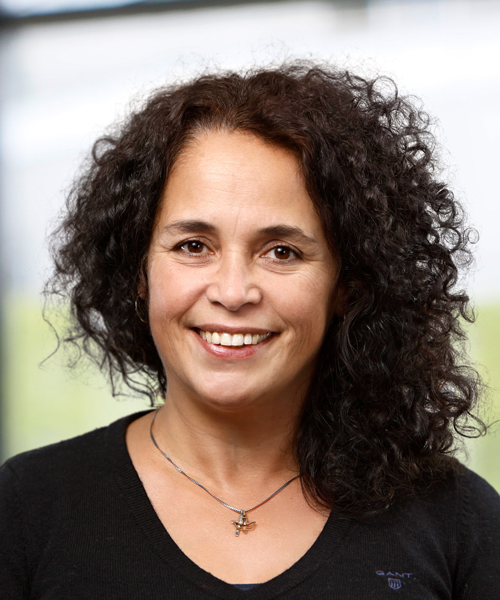News
Designing fair e-assessments
[06.12.2024]Do justice to the diversity of students and thereby make exams more valid - sounds obvious, but is often accompanied by complex challenges. The NOVA:ea (InNOVAtionscluster E-Assessment) research project aims to do just that.
 Photo: Carol Yepes-Moment/GettyImages
Photo: Carol Yepes-Moment/GettyImages
Dafür arbeitet das Forschungszentrum CATALPA an der FernUniversität in Hagen engmit dem Deutschen Institut für Erwachsenenbildung (DIE) zusammen.Dr. Sina Lenski (DIE), Prof. Dr. Hannes Schröter (DIE und CATALPA) und Kirsten Gropengießer (CATALPA) geben aktuelle Einblicke in das Projekt.
NOVA:ea - the key data
In the CATALPA joint project NOVA:ea (InNOVAtionscluster E-Assessment), researchers from CATALPA, the German Institute for Adult Education (DIE), the Rheinisch-Westfälische Technische Hochschule Aachen (RWTH) and the Technische Hochschule (TH) Köln are investigating how e-assessments - i.e. digital examinations - can be designed in such a way that they reflect the actual performance of all student groups as far as possible. In close cooperation with the Center for Learning and Innovation (ZLI), NOVA:ea is also an innovation project at the FernUniversität in Hagen. The project aims to increase examination quality and acceptance by creating fair and diverse examination conditions.
From biology to psychology
 Foto: privat
Foto: privatWhat impact does the design of a digital exam have on student performance? And how does a multimedia design influence exam anxiety? This is what Dr. Sina Lenski is investigating. During her doctorate at the Institute for Biology Didactics at the University of Cologne, the biology graduate was already working on the use of multimedia in learning materials. "I was looking for a position after my doctorate and found a project in NOVA:ea where I can ideally contribute my previous work and interests. I find the interdisciplinary collaboration particularly exciting, which allows us to integrate different perspectives from didactics and technology." After all, the topic of digital examinations has been hugely relevant since the coronavirus era at the latest. "In my view, it's a very topical and exciting research subject. I'm particularly enthusiastic about research into exam anxiety and how digital exams can reduce it."
More successful through music?
 Foto: KI-generiertes Bild
Foto: KI-generiertes BildSina Lenski sees a very promising approach in the area of multimedia - in particular the use of music. "There is already research that shows that music has a positive effect on anxiety and stress. I'm interested in whether it might be useful to listen to certain music during exams. I mean, anecdotally we know that. When I'm studying or writing, I like to listen to music and it can help me to focus. My goal is to gain more insight into what role this could play in practice."
Clearer, not simpler
In the end, it is about nothing less than making examinations more valid. Students should be able to show what they are really capable of. Prof. Dr. Hannes Schröter, head of the project at the DIE, is particularly concerned about this point. Education and therefore also examinations have become more digital across the board in recent years. This has had an impact on students and their performance - more so for some groups than others. Schröter was able to show, for example, that diversity characteristics such as origin or non-German mother tongue contribute to poorer results. The research team demonstrated these effects in practice, for example in computer science practice exams. The theory is therefore obvious: not only computer science knowledge was required here, but perhaps also linguistic competence in order to solve the tasks well. "Such exams are not fair or fair to diversity," explains Hannes Schröter. "The question is: how do we get to the point where we really only test the skills that are relevant to the course without making exams easier in general?"
Impairments and examination performance
 Foto: Hardy Welsch
Foto: Hardy WelschA recent study by Kirsten Gropengießer at CATALPA also provides a small building block for fair and diversity-friendly examinations. She investigated whether certain impairments, such as a visual impairment, neurodiversity (e.g. ADHD, autism), physical motor disabilities or fears in dealing with computer-based technologies lead to a preference for known or familiar technical systems.
"Our assumption was that students with disabilities would prefer to work with the familiar Moodle system they had already used during the semester during an exam. We thought this could be a relief because they wouldn't have to familiarize themselves with new software during the exam." However, this assumption was not so clearly confirmed, explains the psychologist: "In the end, we were only able to establish a slight tendency in favor of Moodle over the other, pure examination system Dynexite for the group of chronically ill students who are older and have several impairments and/or have a higher computer anxiety . For example, people with a higher number of impairments found Moodle to be the more useful system, and there were also tendencies towards the more familiar system in the qualitative statements," says Gropengießer. For the researcher, this means: "If these effects are confirmed in further studies, for example with larger groups, this would be an important indication that we should give people with (multiple) impairments in particular the opportunity to familiarize themselves with an e-exam system before the exam. Even if they only perceive a system as slightly more convenient or useful, we reduce any potential negative impact on their exam performance."
Technology, didactics, transfer
NOVA:ea aims to make examinations diversity-friendly in order to better support students with different backgrounds. To this end, CATALPA and the DIE are working together with other partners on an interdisciplinary basis in NOVA:ea. RWTH Aachen University and TH Köln are working primarily on the technology side, while DIE and CATALPA are focusing on didactics and transfer, i.e. optimizing examinations and developing offers for practice. Overall, the researchers are examining the following aspects:
- Student drop-out: Dropping out of education is a problem that affects all areas of education. Diversity characteristics are always at the heart of this - for example, the question of which student groups may need special support. For example, the team found that the two early warning signs for dropping out, namely not registering for module exams and exam performance, are linked to exam anxiety. Sina Lenski and her colleagues published an article on this at the beginning of the year (https://doi.org/10.1177/15210251241266547).
- Design of exams:This is primarily about the design of exam items, for example exam questions, with images or audio elements. Is everything that is possible also necessary? Research in this field is relatively rare. Multimedia has a positive effect on learning, for example, but is this also the case for exams? And can exam anxiety possibly be reduced through the use of multimedia?
- Feedback: When researching the role of feedback, NOVA:ea is primarily concerned with formative feedback, i.e. feedback on personal learning progress over the course of a semester. Mock exams are a good example of this. Questions to which answers are sought in various studies include What types of feedback are desired in the first place. And is it personality-dependent whether you seek feedback?

